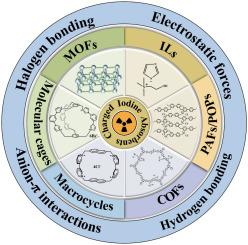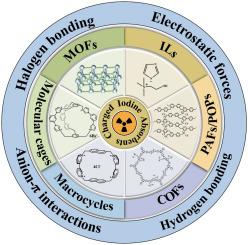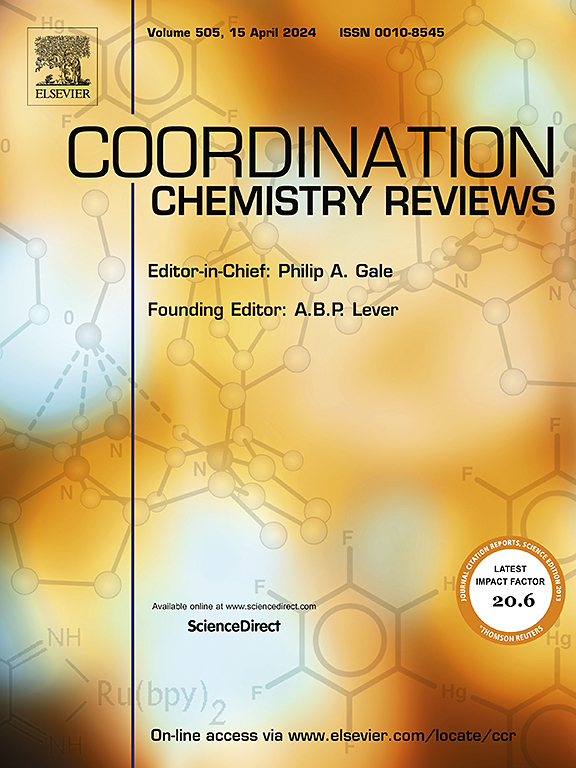用于碘捕获的带电吸附剂
IF 23.5
1区 化学
Q1 CHEMISTRY, INORGANIC & NUCLEAR
引用次数: 0
摘要
核废料中存在的放射性碘同位素,如129I和131i,不仅具有高度挥发性,而且易于在海洋生物中生物积累,最终通过食物链对人类构成严重的健康风险。这一重大挑战刺激了用于有效捕获和安全储存放射性碘的先进材料的发展。带电吸附剂通过一系列非共价相互作用,包括静电力、氢键、阴离子-π相互作用和碘与卤素的相互作用,对碘的吸收显示出很大的希望,从而提高了吸附性能。这些带电物质对碘的亲和力很强。本文综述了金属有机骨架(MOFs)、离子液体(ILs)、多孔芳香骨架(PAFs)、多孔有机聚合物(POPs)、共价有机骨架(COFs)、大环和分子笼等带电吸附剂的研究进展。最后,文章讨论了旨在捕获放射性碘的带电吸附剂的新趋势和未来前景。本文章由计算机程序翻译,如有差异,请以英文原文为准。


Charged adsorbents for iodine capture
Radioactive iodine isotopes, such as 129I and131I, present in nuclear waste are not only highly volatile but also tend to bioaccumulate in marine organisms, ultimately posing severe health risks to humans through the food chain. This critical challenge has spurred the development of advanced materials for the effective capture and safe storage of radioactive iodine. Charged adsorbents show great promise for iodine uptake through a range of noncovalent interactions including electrostatic forces, hydrogen bonding, anion-π interactions, and halogen bonding with iodine species, thereby improving adsorption performance. These charged materials demonstrate strong affinities for iodine species. This review summarizes the recent progress of various charged adsorbents, including metal-organic frameworks (MOFs), ionic liquids (ILs), porous aromatic frameworks (PAFs), porous organic polymers (POPs), covalent organic frameworks (COFs), macrocycles and molecular cages. Finally, the article discusses emerging trends and future prospects for charged adsorbents aimed at capturing radioactive iodine.
求助全文
通过发布文献求助,成功后即可免费获取论文全文。
去求助
来源期刊

Coordination Chemistry Reviews
化学-无机化学与核化学
CiteScore
34.30
自引率
5.30%
发文量
457
审稿时长
54 days
期刊介绍:
Coordination Chemistry Reviews offers rapid publication of review articles on current and significant topics in coordination chemistry, encompassing organometallic, supramolecular, theoretical, and bioinorganic chemistry. It also covers catalysis, materials chemistry, and metal-organic frameworks from a coordination chemistry perspective. Reviews summarize recent developments or discuss specific techniques, welcoming contributions from both established and emerging researchers.
The journal releases special issues on timely subjects, including those featuring contributions from specific regions or conferences. Occasional full-length book articles are also featured. Additionally, special volumes cover annual reviews of main group chemistry, transition metal group chemistry, and organometallic chemistry. These comprehensive reviews are vital resources for those engaged in coordination chemistry, further establishing Coordination Chemistry Reviews as a hub for insightful surveys in inorganic and physical inorganic chemistry.
 求助内容:
求助内容: 应助结果提醒方式:
应助结果提醒方式:


